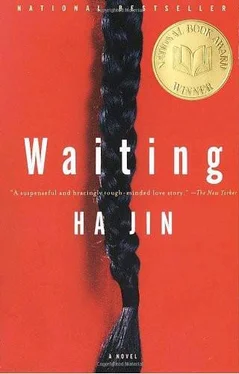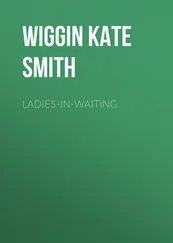Lin's condition improved rapidly. His face returned to its normal paleness. After two months' treatment, the spot on the upper lobe of his left lung had shrunk to the size of an almond. The prognosis was that it would calcify soon. His recovery was mainly due to the newly invented herbal drug named Baibu, with which the hospital had treated some of its tuberculous patients. Whereas streptomycin remained more effective on most of the patients, some of them reacted to the herbal drug miraculously. To Lin's amazement, the injections he had received, along with cod-liver oil and vitamins, had cured his arthritis as well, although both sides of his hips were now covered with painful swellings, which gave him a slight limp.
Toward the end of November, when he had entirely recuperated, Lin was ordered to go to Shenyang to attend a program designed for officers, studying Marx's Theories of Surplus Value. He was eager to go, not because he was interested in the book but because his alma mater was in that city. He wanted to revisit some places he remembered.
Officially Geng Yang was already discharged from the army, but he was still waiting to be released from the hospital, which had to make sure his tuberculosis was fully cured. His departure for home was imminent. So a few days before Lin left for Shenyang, he and Manna decided to treat Geng Yang to dinner in a restaurant. They asked Ran Su for permission to go to town, which the commissar granted them, but the three of them had to be together outside the hospital.
They took a bus downtown. It was Sunday and the streets were crowded, vendors shouting and greasy smoke rising here and there on the sidewalks. They arrived at Four Seas Garden at about noon. After entering the restaurant, they climbed the dingy concrete stairs and found an octagonal table on the second floor, where diners were fewer and less noisy than those eating and drinking downstairs. Geng Yang removed his fur hat and hung it on the ear of an iron chair. So did Lin and Manna. The moment they sat down, a middle-aged waitress in a red apron came and took their orders. They would have a few cold dishes — pork head, pickled mushrooms, baby eggplants, and salted duck eggs. As for the entree they ordered dumplings stuffed with pork, dried shrimps, cabbage, and scallions. In spite of Manna's admonition, Geng Yang added a liter of stout.
First came the beer in a huge mug, fizzing faintly. Geng Yang lifted it up and said with a smile, "Cheers!" Lin and Manna raised their smaller mugs containing merely hot water.
"You don't want your lungs anymore?" Manna said to their guest as he swallowed a gulp.
Geng Yang grinned, displaying his square teeth. "My lungs are rotten already." He dashed a lot of chili oil onto his plate, while Lin and Manna spooned some mustard onto theirs, waiting for the dumplings. Outside, four sparrows perched on the window ledge, which was coated with soot that looked like rat droppings. The birds were chittering and shivering with the blasting horns of the automobiles passing on the street. One of them had a blind eye, whose corner carried a drop of frozen blood. It was snowing lightly, a few snowflakes swirling beyond a pair of power lines slanting across the window. The sky had grown overcast, shimmering a little. A male voice cried below the windows, "Fresh pike, just out of the river this morning." A woman chanted, "Fried dough twists, sweet and warm, fifteen fen apiece."
The cold dishes and the dumplings came together; for a moment steam obscured the tabletop. Lin was glad they didn't have to wait long. Geng Yang picked up a chunk of pork ear and put it into his mouth. Munching it, he said, "This is delicious!"
With chopsticks Lin and Manna raked a few dumplings onto their plates. They exchanged glances, and he realized she was thinking the same thought — this was the first time they had eaten together in a restaurant. A miserable emotion surged in him, but he remembered they had company and made an effort to take hold of himself. Meanwhile, Manna kept her eyes on the table, as though not daring to look at either man. Lin tried to be cheerful, urging their guest to eat to his heart's content. That was hardly necessary, since Geng Yang was helping himself comfortably.
Halfway through dinner, the guest claimed that it was too bad he wouldn't be able to drink their wedding wine. At the word "wedding," Lin and Manna fell silent, their faces gloomy.
"Come on," Geng Yang said, "don't be so sad. We're still alive and should enjoy ourselves."
"If only I knew what to do." Lin massaged his forehead with his fingertips while chewing a garlic leaf that served as garnish for the sliced pork head.
"Try again next year," Geng Yang said. "If I had a beautiful woman like Manna with me, I'd do anything. Cheer up, Lin, remember you're lucky and you should be grateful."
"Grateful for what?"
"For everything you have."
Lin shook his head while Manna's eyes were moving back and forth between the two men's faces.
A moment later she asked Geng Yang, "Can you give us some advice?"
"To tell you the truth, I don't like the idea of divorce. But if you two really want to live together as husband and wife, you'll have to go through this thing."
"We know that, but how can I bring about the divorce?" Lin asked, cutting a dumpling in half with his chopsticks.
"There must be a way. Even if a goose has an iron neck, it must have a spot where you can plunge a knife in."
"Tut-tut," Manna said, "don't brag. Say something specific."
"I'm not in your shoes. But one thing I know for sure: if you spend some money, it will work. Say, give Shuyu two thousand yuan."
"No, no, you don't understand," Lin said. "She doesn't want any money. She's a plain, simple-hearted woman."
"I don't believe that. If you spend money on the right person, I'm sure it will help. With money you can hire the devil to grind grain and cook dinner for you."
Neither Lin nor Manna said another word, surprised by his assertion.
Geng Yang continued, "Come on, don't look at me like I was a zombie or something. I can prove what I said is true." He pointed his chopsticks at Lin's chest. "For example, three years ago a regimental commander in my division had a young woman, a journalist from Beijing, detained in his barracks and wanted to spend a week with her. Then her colleagues sent a telegram to the Shenyang headquarters, and the officer was ordered to release the woman immediately. He had no choice but to let her go. Afterward we all thought this man would be either demoted or discharged. There was an internal report criticizing him severely, and we all believed he was a goner. Do you remember that bulletin?"
"Yes, I do," Lin said. "What happened to him?"
"Last year he was promoted to divisional chief of staff."
"How could that happen?" Lin and Manna asked in unison.
"Well, according to what I heard, he spent fifteen hundred yuan for two pairs of gold bracelets and presented them to our divisional commander and commissar, one pair for each, saying the bracelets were his hometown's local product. Everybody knew it was a damn lie, but it helped him. So he was promoted. You see, with money he reversed his fortune. If I had money, I'd have done something and would not have been discharged like this. Even though I may no longer be good enough to lead troops on the front, I can still be a useful officer at headquarters, at least more useful than many others. Don't you think?"
"Yes, of course," said Lin. With a spoon he removed the mashed garlic from within a pickled baby eggplant. He cut it in two and put a piece into his mouth.
For a minute Lin and Manna ate quietly, not knowing how to respond to their guest's advice.
Then Lin asked Geng Yang, "Can we do something for you before you leave?"
Читать дальше











